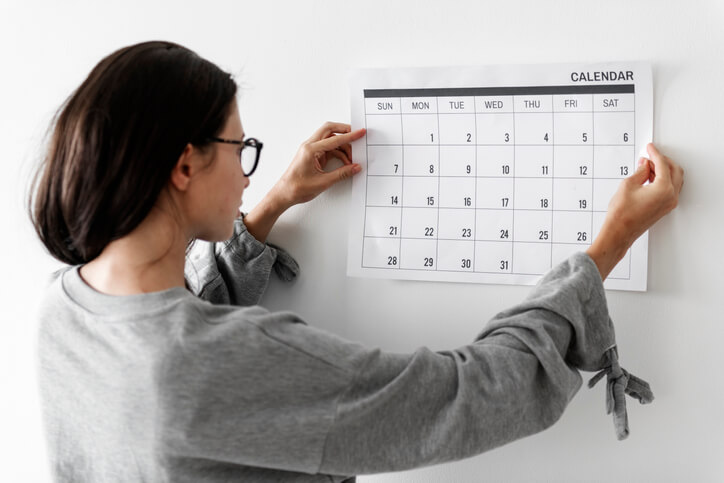Whether you’ve just started thinking about having a family or you’ve been trying for a while, there is some basic information that can help you improve your chances of conceiving. If you’ve been saying to yourself, “I need to get pregnant this month!”, this article is for you. We’re going to review the basics of when you’re most fertile, when you should seek the help of a doctor and what options you have if you need help getting pregnant sooner rather than later.
I Need to Get Pregnant This Month – How Do I Know When I’m Ovulating??
Your menstrual cycle every month entails ovulation. Ovulation is when an egg is released from your ovary. The egg is typically viable for approximately twelve to twenty-four hours where it can be fertilized by sperm. If fertilization happens, the embryo should make its way to the uterus and attempt to implant in the uterine lining (also known as the endometrium). If it’s not fertilized, the uterine lining (that has gotten thicker in anticipation of an embryo that may implant), sheds its lining and that is your period. If you’ve been saying, “I need to get pregnant this month!”, then knowing when you’re ovulating and having sex around ovulation time will maximize your chances of conceiving. There are several ways you can pinpoint your ovulation time:- Basal Body Thermometer: These are available online or at your local drugstore but make sure you’re purchasing one that says, “Basal Body temperature Thermometer”. You could use this to chart your basal body temperature daily and when your temperature rises slightly, this likely indicates that you’re ovulating.
- Monitoring Your Cervical Mucus: Hormone changes can impact your vaginal discharge. When you’re ovulating, your cervical mucus will resemble egg whites. It will be stretchy and easy for the sperm to swim through, which will indicate that you are likely fertile.
- Ovulation Prediction Kits: These are also available at any local drug store. The test looks for a luteinizing hormone (LH) in your urine, which will rise when you’re ovulating. When you get a “positive” ovulation prediction kit, that means you’re in your fertile period.
I Need to Get Pregnant This Month – I Have Been Trying to Conceive for A While
If you’re a woman who is younger than 35 years old and have been trying to conceive for over a year or if you are 35 years old or older and have been trying to conceive for over six months, you may want to see a reproductive endocrinologist. If it’s taking longer than you expected, it’s understandable why you’ve been putting pressure on yourself feeling like, “I need to get pregnant this month!” but even the healthiest of couples can’t plan on conceiving immediately. In fact, only one third of healthy couples conceive in the first month of trying. The reality is that in some cases medical intervention can significantly improve chances of conception.I Need to Get Pregnant This Month – I May Need the Help of a Doctor
While many don’t relish the idea of having a doctor help them conceive their children, if you have been saying, “I need to get pregnant this month!”, seeing a reproductive endocrinologist is a great place to begin exploring your options. Above, we’ve mentioned how long you may want to try to conceive on your own before seeing a fertility doctor, but below are other reasons you should consider seeing a doctor:- Missing periods or irregular periods
- You are a 40 years old or older
- Having a difficult time determining when you’re ovulating
- You have been diagnosed or have concerns you have endometriosis
- You have been diagnosed or have concerns you have Polycystic Ovarian Syndrome (PCOS)
- You have a history of pelvic infection, such as pelvic inflammatory disease (PID)
- You have had two or more miscarriages (known as Recurrent Pregnancy Loss)
- You have a genetic or chromosomal family history
- Your couple is diagnosed by any sperm disorder




